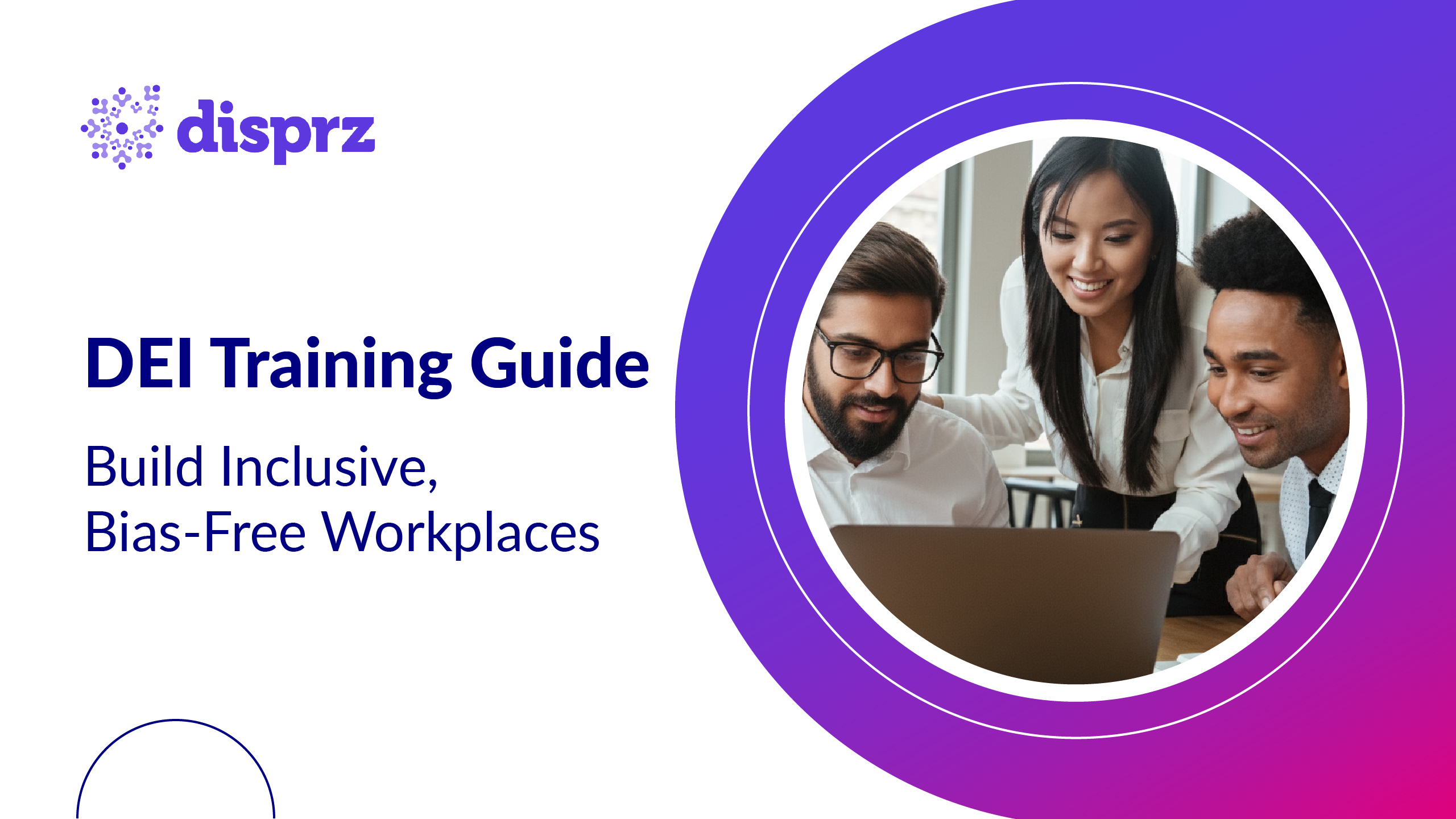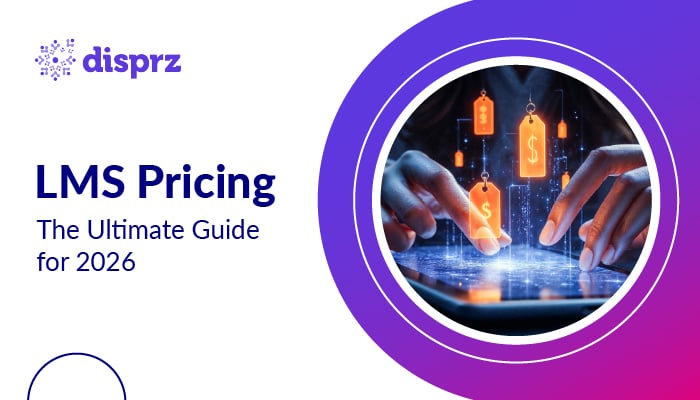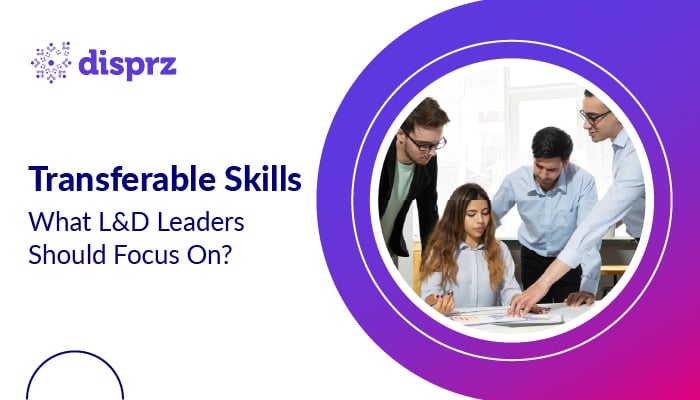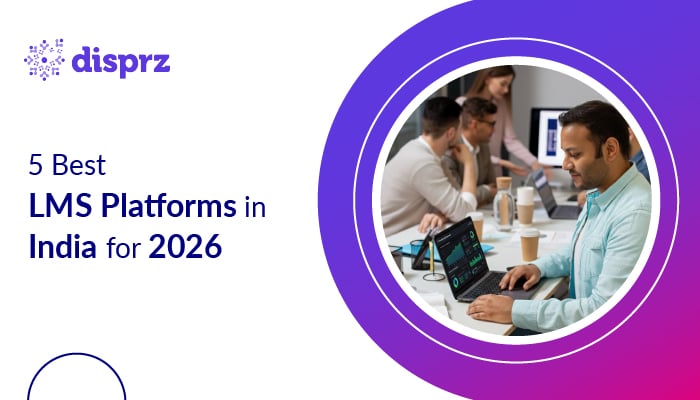DEI (Diversity, Equity, and Inclusion) training holds critical importance today because the way we work has changed faster than the way we interact. Hybrid teams, a wide generational mix, and rising expectations for fairness have revealed gaps leaders can no longer overlook. Inclusion has shifted from a policy line to a daily performance skill. And employees are noticing.
According to research by LinkedIn, 76% of employees and job seekers said diversity was important when considering job offers, and 80% of survey respondents said they want to work for an organization that values DEI issues.
Here we explore why DEI learning has gained renewed urgency, how the training landscape is evolving, and what it takes to build programs that genuinely shift behaviour.
What Is DEI Training and Why Does It Matter in 2026?
DEI, or Diversity, Equity, and Inclusion, is a workplace approach that strengthens how people collaborate, make decisions, and feel valued. DEI training helps employees recognize bias, understand differences, and build everyday habits that create a fair and respectful environment.
It matters even more in 2026 because workforces have become more hybrid, global, and multigenerational. These shifts have widened behaviour gaps in terms of how people communicate, share space, and make decisions.
With diverse leadership now linked to stronger innovation and financial performance, DEI has moved from a cultural priority to a business-critical capability.
What DEI Training Includes
-
Understanding unconscious bias and how it influences everyday decisions
-
Recognising microaggressions and building respectful communication habits
-
Learning allyship and how to support colleagues meaningfully
-
Practicing inclusive behaviours in meetings, feedback, and collaboration
-
Strengthening skills for fair decision making, hiring, and promotions
Difference Between Diversity, Equity and Inclusion
| Concept | What It Means at Work | Why It Matters |
|---|---|---|
| Diversity | Who is represented in your workforce across backgrounds, identities, and experiences | Brings wider perspectives and richer problem-solving |
| Equity | Whether everyone has fair access to opportunities, resources, and support to succeed | Reduces systemic barriers and enables real growth for all |
| Inclusion | Whether people feel respected, heard, and able to contribute fully | Strengthens trust, engagement, and day-to-day team performance |
6 Types of DEI Training (Examples and When to Use Each)

1) Basic Diversity Training
Focus: Awareness of differences in gender, age, culture, and identities
Best for: New hires or organisations beginning their DEI journey
Outcome: Builds foundational understanding and shared language
Example: A starter module that introduces real workplace scenarios showing how diverse perspectives shape better decisions.
2) Unconscious Bias Training
Focus: Recognising automatic biases in day-to-day behaviour
Best for: Teams involved in hiring, reviews, promotions, or customer interactions
Outcome: More mindful decisions and fairer evaluations
Example: A hiring simulation that helps managers spot bias in resume screening.
3) Skills-Based DEI Training
Focus: Practical, behaviour-focused skills such as inclusive communication, feedback, and collaboration
Best for: Teams that already understand DEI concepts but need everyday habits
Outcome: Stronger team dynamics and more respectful interactions
Example: A workshop on running inclusive meetings where everyone’s voice is heard.
4) Anti-Oppression and Allyship Training
Focus: Reducing power imbalances and building active support behaviours
Best for: Cross-functional teams, managers, and leadership groups
Outcome: Creates a safer, more supportive environment for underrepresented employees
Example: Guided role plays on stepping in when a colleague faces dismissive behaviour.
5) Religious Sensitivity Training
Focus: Respecting diverse faiths, practices, holidays, and accommodations
Best for: Global or multicultural workplaces
Outcome: Fewer misunderstandings and more inclusive team rituals
Example: A module that explains how prayer breaks or dietary needs can be integrated without disruption.
6) Inclusive Leadership Training
Focus: Building leaders who model fairness, psychological safety, and equitable decision making
Best for: People managers, senior leaders, and high-potential talent
Outcome: Stronger trust, better team performance, and more inclusive cultures
Example: A leadership lab where managers practise coaching employees from different backgrounds.
Benefits of DEI Training in the Workplace
| Benefits | Proof / Data | How DEI Training Drives It |
|---|---|---|
| Innovation | Firms in the top quartile for gender & ethnic diversity in leadership were 39% more likely to achieve above-average profitability. Forbes | Helps employees challenge bias, value different viewpoints, and collaborate more creatively. |
| Engagement | Inclusive teams report higher workforce engagement and are 35% more productive. LinkedIn | Builds everyday behaviours that create psychological safety and stronger team trust. |
| Retention | Studies show inclusive cultures are linked to stronger loyalty and lower turnover. | Reduces exclusion moments, improves belonging and strengthens employee connection to the workplace. |
| Productivity & Profit | Organizations in the top quartile for ethnic diversity have a 36% likelihood of financial outperformance. LinkedIn | Enables fairer decisions, smoother teamwork, and fewer friction points in daily work. |
| Reputation | Over 80% of leaders say embedding DEI boosts brand reputation by up to 27%. Deloitte | Shows commitment to fairness, strengthens employer brand, and attracts top talent. |
Learn more about " Is Your L&D Program Missing the Main Ingredient?"
Why DEI Training Fails (and How to Fix It)
There are various reasons why DEI training doesn’t help accomplish the best outcomes. Here are some of the common reasons and steps to alleviate them.
| Common Pitfalls | What to Do Instead |
|---|---|
| No Leadership Buy-In | Get leaders to model inclusive behaviours and make DEI part of team goals. |
| Culture Resists Change | Start with small behaviour-based nudges and team rituals instead of trying big-bang change. |
| One-Off Sessions | Replace one-time workshops with continuous learning journeys and refreshers. |
| Ignores Unconscious Bias | Build modules that help employees spot bias and use fair-decision tools. |
How to Implement DEI Training Programs Effectively
DEI training works best when it follows a clear, structured plan built on proven DEI training best practices.
Here’s a simple sequence that turns intent into real behaviour change:
Secure leadership commitment
-
Action: Get executive sponsors to publicly endorse DEI goals, join key sessions, and include DEI objectives in leader scorecards.
-
Quick win metric: % of people managers who complete leader DEI modules and reference DEI in one performance conversation.
Start with a diversity audit
-
Action: Run a short audit using surveys, focus groups, and HR data to identify representation gaps, hotspots, and priority groups.
-
Quick win metric: Baseline measures for representation, engagement, and reported exclusion incidents.
Translate findings into a training roadmap
-
Action: Prioritise training needs, sequence modules from awareness to behaviour, and map who needs what by role and career stage. DEI training should not be a one-time event; it offers continuous learning opportunities and refreshers to maintain progress and address evolving issues.
-
Quick win metric: 6 to 12-month curriculum calendar with assigned owners.
Design customised, practical content
-
Action: Build microlearning modules and scenario-based workshops that reflect your industry, regions, and real work situations. Include clear behavioral prompts.
-
Quick win metric: Completion rates for role-specific modules and qualitative feedback on relevance.
See how Disprz delivers mobile DEI learning for distributed teams.
Involve employees as creators and facilitators
-
Action: Invite diverse employees to co-create content, share lived experience, and run peer learning sessions to increase authenticity.
-
Quick win metric: Number of self-paced learning modules created by employees and learner ratings for relatability.
Create safe spaces and open dialogue
-
Action: Set clear norms for discussion, use trained facilitators, and offer anonymous channels for concerns and questions.
-
Quick win metric: Improvement in psychological safety scores and volume of constructive feedback.
Anchor learning in daily work with practical application
-
Action: Add on the job prompts: inclusive meeting checklists, fair hiring scripts, feedback frameworks, and manager coaching labs.
-
Quick win metric: % of managers using the inclusive hiring checklist within three months.
Measure, iterate, and hold people accountable
-
Action: Track behaviour and outcome metrics such as hiring fairness, promotion rates, engagement gaps, and share progress quarterly. Tie outcomes to leader goals.
-
Quick win metric: Change in targeted outcome (for example, reduction in promotion gap) after two quarters.
Sustain momentum with ongoing learning and recognition
-
Action: Schedule refreshers, micro learning journeys, and coaching. Celebrate team and individual wins publicly to reinforce new norms.
-
Quick win metric: Repeat participation in advanced modules and number of DEI recognitions in company communications.
Implementation tips
-
Pilot with one function or geography, then scale.
-
Use mobile microlearning for distributed teams to boost access.
-
Make every session outcome-oriented: what behaviour should change next week.
-
Keep reporting simple: three core metrics the business cares about.
How Disprz Supports DEI Training at Scale
Disprz makes DEI learning accessible, personalised, and behaviour-driven for organisations with diverse teams and distributed workforces.
The platform helps organizations move beyond one-off sessions and build continuous, high-impact DEI habits at scale.
-
Role-based learning paths that curate the right DEI lessons for managers, frontline teams, and individual contributors.
-
Bite-sized modules on bias, allyship, and inclusive behaviour that make learning easy to absorb and apply in real situations.
-
Discussion forums that create safe spaces for dialogue, allowing employees to ask questions and share experiences without fear.
-
Pulse feedback and analytics to sense how teams feel, spot behaviour shifts, and identify areas that need support.
-
Mobile first access for every role, ensuring even distributed and deskless teams can learn without disruption.
Key Takeaways
-
DEI has shifted from a values initiative to a performance driver, with diverse and inclusive teams showing clear gains in innovation, engagement, and financial outcomes.
-
A mix of training types (basic diversity, unconscious bias, allyship, inclusive leadership) helps employees move from awareness to consistent, inclusive daily behaviours.
-
DEI programs see the highest impact when they follow a structured roadmap: audit → tailored content → dialogue → practical application → continuous measurement.
-
Behaviour change only sticks when learning is ongoing. Microlearning, coaching, team rituals, and manager reinforcement make DEI part of everyday work.
-
Scaling DEI across distributed teams requires accessibility; mobile-first modules, discussion forums, and feedback analytics ensure everyone participates meaningfully.
-
Platforms like Disprz help organisations scale DEI training through mobile-first microlearning, safe discussion forums, and analytics that show where inclusion is improving and where teams need support.
Conclusion
DEI training has become one of the few levers that reliably improve how teams think, collaborate, and make decisions. When organisations pair structured learning with real-world practice, inclusion stops being a standalone initiative and starts shaping everyday moments in terms of who speaks up, how feedback is given, and how opportunities are shared. That’s where the real shift happens: in the quiet, consistent behaviours that build trust and unlock better performance.
If you’re ready to make DEI learning practical, accessible, and scalable across every team, Disprz can help you deliver it with consistency and impact.
Explore how Disprz strengthens DEI learning across modern workplaces.
FAQs
1) What is DEI training in the workplace?
DEI training teaches employees how to understand diversity, practice equity, and build inclusive habits at work. It covers concepts such as bias, cultural awareness, and respectful communication, then turns them into everyday behaviours. The goal is to create a workplace where people feel valued, heard, and treated fairly, which strengthens collaboration, trust, and overall team performance.
2) How often should DEI training be conducted?
DEI training works best when it is continuous. Most organisations run a core program once a year to build shared understanding, then reinforce it with quarterly microlearning, team discussions, and manager-led practices. Regular refreshers help people apply concepts in real situations and ensure inclusion stays part of daily work, not a one-time compliance activity.
3) What are the most effective types of DEI training?
The most effective DEI training blends awareness and skills. This includes unconscious bias training, allyship, inclusive leadership, cultural and religious sensitivity, and communication or decision-making modules. These programs teach people how to recognise bias, support colleagues, and make fair choices. When combined, they help teams build consistent, inclusive behaviour across different roles and situations.
4) How do you measure DEI training impact?
DEI impact is measured by tracking behaviour change, engagement levels, and fairness in hiring, promotion, and feedback processes. Organisations review employee sentiment, manager observations, and participation in DEI modules. Improvements in team trust, reduced turnover, and a more inclusive culture signal that training is working. Regular data reviews help refine the program over time.
5) What are DEI trends for 2026?
DEI in 2026 is shifting toward skills-based learning, mobile-first micro modules, and continuous behaviour reinforcement. Organisations are focusing on inclusive leadership, data-driven insights, and practical habits embedded in daily work. There is also a growing emphasis on psychological safety, culturally sensitive content, and tools that help managers make fair, consistent decisions across hybrid and global teams.








